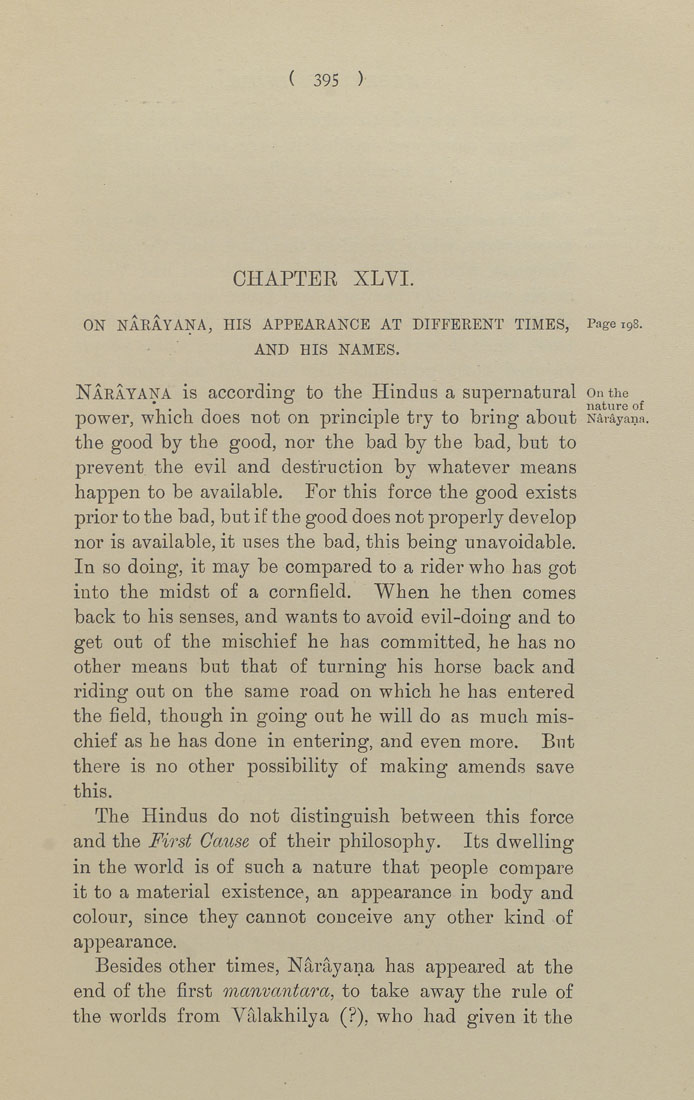Bīrūnī, Muḥammad ibn Aḥmad, Alberuni's India (v. 1)
(London : Kegan Paul, Trench, Trübner & Co., 1910.)
|
||
|
|
|
|
| Page 395 |

( 395 ) CHAPTER XLVI. ON NARAYANA, HIS APPEARANCE AT DIFFERENT TIMES, Page 198. AND HIS NAMES. Narayana is according to the Hindus a supernatural onthe *- . , , ... , . , nature of power, which does not on principle try to bring about Narayana. the good by the good, nor the bad by the bad, but to prevent the evil and destruction by whatever means happen to be available. For this force the good exists prior to the bad, but if the good does not properly develop nor is available, it uses the bad, this being unavoidable. In so doing, it may be compared to a rider who has got into the midst of a cornfield. When he then comes back to his senses, and wants to avoid evil-doing and to get out of the mischief he has committed, he has no other means but that of turning his horse back and riding out on the same road on which he has entered the field, though in going out he will do as much mis¬ chief as he has done in entering, and even more. But there is no other possibility of making amends save this. The Hindus do not distinguish between this force and the First Cause of their philosophy. Its dwelling in the world is of such a nature that people compare it to a material existence, an appearance in body and colour, since they cannot conceive any other kind of appearance. Besides other times, Narayana has appeared at the end of the first manvctntara, to take away the rule of the worlds from Valakhilya (?), who had given it the |
| Page 395 |







